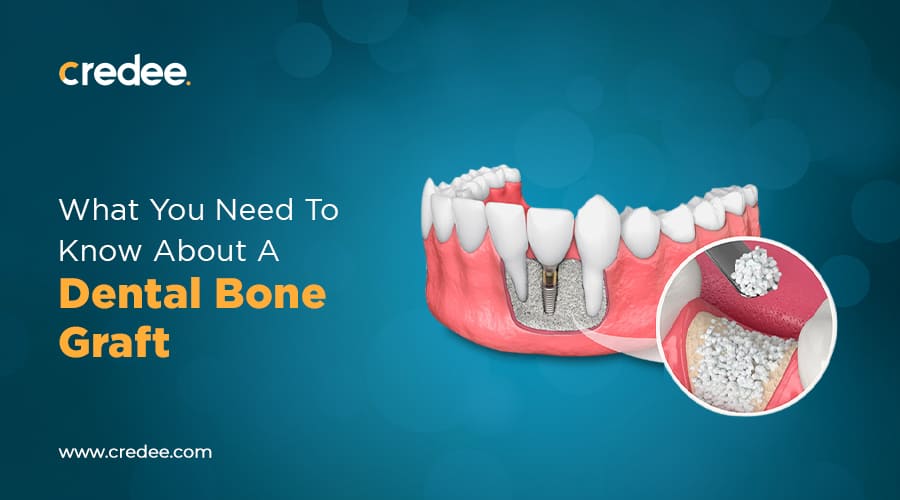
The cost of wisdom teeth removal can be a significant barrier for many individuals seeking the procedure. The price varies based on factors like location, complexity of extraction, and anesthesia requirements. Without insurance, expenses can range from hundreds to thousands of dollars per tooth.
This financial burden often leads people to delay or avoid the procedure, despite potential long-term dental health risks. It's crucial to address problematic wisdom teeth to prevent infections and other complications. Discussing cost estimates and payment options with dental professionals can help lessen financial concerns and ensure necessary treatment.
As for the price, the average cost of wisdom teeth removal with insurance is $450 per tooth. If you need all four wisdom teeth removed, it comes to $1,200 per tooth, on average.
What Are Wisdom Teeth?
Wisdom teeth typically emerge as the third and last set of molars during an individual's late teens or early twenties i.e., between ages 17 and 25.
Types Of Wisdom Teeth
1. Forward Tilting: The wisdom teeth are positioned towards the front of your mouth.
2. Sideways Tilting: Medically called horizontal impaction, the third molar lies sideways, pressing closely against the adjoining molar.
3. Backward Tilting: The wisdom teeth are positioned in a way that they tilt towards the back of your mouth.
| Trivia About Wisdom Teeth ✅ Wisdom teeth, remnants of our past, were once crucial for chewing tough food, but with modern diets, they're no longer necessary. ✅ Around 90% of people have at least one impacted wisdom tooth. ✅ Their number varies from 0 to 4. Some have all 4 while others have none. ✅ Interestingly, some keep their extracted wisdom teeth as a symbol of luck. |
How Much Does Wisdom Teeth Removal Cost?
The removal costs associated with wisdom teeth are directly related to the complexity of the procedure. For example, complete extraction of a third molar is inexpensive compared to treating an impacted one. This is because the impacted molar requires surgical extraction by an oral surgeon.
| Wisdom Teeth Surgical Extraction | Wisdom Teeth Non-Surgical Extraction |
|---|---|
| AVG. COST: $500 per tooth | AVG. COST: $300 per tooth |
Cost To Pull Wisdom Teeth Based On Impaction
If the impaction is high so is the cost because the procedure becomes more complicated. For example, if your wisdom tooth erupts normally but needs extraction, the dentist may perform a simple extraction with local anesthesia. But, if your wisdom is impacted, you may have to go to an oral surgeon to get it removed. Thus, increasing the cost.
Below is a breakdown of the expenses associated with extracting impacted wisdom teeth.
| Impaction Type | Description | Average Cost |
|---|---|---|
| Soft Tissue Impaction | Wisdom tooth is covered by gum tissue, requiring an incision for extraction, and potentially needing more anesthesia and stitches. | $200 - $800 |
| Partial Bony Impaction | Partially erupted wisdom tooth, requiring incision into gums and removal of bone covering the tooth. General anesthesia or sedation may be required. | $250 - $900 |
| Full Bony Impaction | A horizontally positioned wisdom tooth that is still in the jawbone. Extraction involves cutting through gums and bone. It requires general anesthesia. | $300 - $1,200 |
Average Cost Of Wisdom Tooth Extraction
The cost of a wisdom tooth extraction depends on multiple factors including:
▪ The complexity of the procedure
▪ The number of wisdom teeth needing extraction
▪ Diagnostic exams and X-rays
▪ Post-op medications for pain management
Why Do You Need Your Wisdom Teeth Removed?
5 top reasons for wisdom teeth removal
1. Excruciating Pain: The unbearable pain may be a sign that you need dental intervention. If the pain does not subside by painkillers, a further investigation may be required.
2. Swollen Gumline: An erupting third molar will push through the gums and cause swelling. Sometimes, when the wisdom teeth are not growing in the right direction or tilted, they may not be able to break through the gum and thus irritate it.
3. Crowded Teeth: Wisdom teeth are larger than other teeth and sometimes the mouth has no space to accommodate them. It has been generally noticed in teens that when wisdom teeth come in, they push against nearby teeth, causing them to move. So, when these wisdom teeth are extracted, other teeth can settle back into place.
4. Jaw Issues: This is the worst-case scenario when the jaw does not shut down completely. The reason could be simply an impacted wisdom tooth that causes the jaw to close properly once removed.
5. Cavities: When the third molar has not erupted fully or tilted, it may cause crowding and cavities. Thus, you are not able to brush properly and cavities may appear. Removing a wisdom tooth can reduce bacteria in the mouth and make it tough for cavities to form.
Discover Affordable Options: Explore Dental Implant Grants!
What To Expect During A Wisdom Tooth Extraction
There shouldn’t be any pain when your wisdom tooth is removed because the area will be numb. But, if in case, you feel discomfort, tell your dentist so they can do the needful.
There are three main stages to wisdom teeth extraction:
✅ Preparation Stage
▪ During your initial consultation with the surgeon, they may check your oral health and take dental X-rays.
▪ Ensure that you let the surgeon know the medications you are currently taking.
▪ Your surgeon may discuss sedation options with you to help you calm down during the surgery.
✅ Operative Phase
▪ The dentist applies local anesthesia to numb the area
▪ The oral surgeon will cut through the gum
▪ Remove the bone if it blocks access to the tooth
▪ Remove the tooth in one go or cut the tooth into pieces
▪ Stitches the area for effective healing
▪ Places gauze over the area to control bleeding and aid in blood clot formation
✅ Recovery Phase
Your oral surgeon will give you a list of dos and don'ts after the surgery. Some of these are discussed below:
▪ Don’t spit as it may disturb the blood clot that formed
▪ Pain relievers to manage pain and help the healing process
▪ Ice pack for pain management
▪ Avoid any rigorous activity for at least a week as it may dislodge the blood clot from the socket
▪ Keep yourself hydrated
▪ Apply ice packs to help with swelling
▪ Eat soft, easy-to-chew foods like rice and pasta
How Much Does A Wisdom Tooth Removal Cost With Insurance?
The average cost of wisdom teeth removal is between $300 to $900.
With insurance, the cost of wisdom tooth removal can vary. You might have to make a partial payment, like a copayment, while your insurance covers the rest. The exact amount you pay depends on your insurance plan. Before getting the procedure, it's a good idea to check with your insurance provider or dental office to understand how much you'll need to pay.
How Much Does A Wisdom Tooth Removal Cost Without Insurance?
The chart below shows the average cost of wisdom tooth extraction.
| Simple Extraction/Per Wisdom Tooth | Surgical Extraction/Per Wisdom Tooth |
|---|---|
| $100 to $300 | $250 to $1,200 |
Note: The prices may vary if you have an impacted tooth.
Wisdom Tooth Removal Cost Comparisons (With Or Without Insurance)
The chart below compares the wisdom tooth extraction cost with and without extraction.
| Procedure | With Insurance | Without Insurance |
|---|---|---|
| Dental Cleaning | Usually Covered | $100 - $250 |
| X-Rays | Usually Covered | $100 - $250 |
| Dental Exam | Nothing | $100 - $200 |
| Simple Extraction | 50% Covered | $150 - $900 |
| Soft Tissue Impaction | 50% Covered | $200 - $800 |
| Partial Bony Impaction | 50% Covered | $250 - $900 |
| Full Bony Impaction | 50% Covered | $300 - $1,200 |
Note: Wisdom teeth removal price varies from one state to another. Kindly consult your dentist for accurate costs.
Does Insurance Cover Wisdom Teeth Removal?
Medical insurance typically covers wisdom teeth extraction if deemed medically necessary, while dental insurance may cover part of the cost depending on the plan. It's crucial to check with your insurance provider to understand coverage for this procedure. However, if the removal is considered elective or cosmetic, it might be an out-of-pocket expense. It's advisable to discuss your options with your oral surgeon to determine the best course of action based on your specific situation.
How To Pay For Your Wisdom Tooth Extraction?
Suppose you don't have insurance to cover your dental procedure. In that case, you may have to explore alternative payment options such as paying out of pocket, arranging a payment plan with your dentist, or seeking assistance from dental financing programs or organizations that offer discounted or subsidized dental care.
Besides, some dentists may offer flexible payment plans or discounts for uninsured patients. Discussing your financial situation with your dentist to explore options and find a solution that works for you is important.
Credee Flexible Payment Plans!
These innovative financial solutions keep you free from credit worries. The flexible payment plans will most likely be available at your oral surgeon’s clinic.
With Credee, businesses can instantly create payment plans that best suit their customer’s needs. The advantages of these plans are:
▪ Enhanced flexibility for customization
▪ No credit checks
▪ Trouble-free approval process
▪ No-fee payment processing
▪ Effortless integration with websites
In Conclusion
Navigating the financial aspects of wisdom teeth removal can be daunting for many individuals. Thankfully, there's a solution that stands out: Credee's flexible payment plans. Dentists and oral surgeons are increasingly recommending Credee to their patients, recognizing its effectiveness in addressing financial concerns associated with dental procedures.
With Credee, patients can spread out the cost of wisdom teeth removal over time, making it more manageable and accessible. This innovative payment solution empowers individuals to prioritize their dental health without being burdened by immediate financial strain.
Wisdom Teeth: Frequently Ask Questions
1. What Is the Average Cost Of A Tooth Extraction?
A wisdom tooth extraction costs an average of $450 per tooth. The cost is not inclusive of X-rays and other pre-op work.
2. What Are The Different Types Of Tooth Extraction?
Dental extractions come in two primary forms: simple and surgical. A simple extraction is done for easily visible and accessible teeth, while surgical extraction involves an incision to access and remove the tooth.
3. How Much Is A Tooth Extraction With Insurance?
On average, tooth extraction costs with insurance can range from $150 to $300 for a basic extraction.
4. How Much To Pull A Tooth Without Insurance?
A simple extraction will cost you $100 to $300 and a surgical extraction will cost between $250 to $1,200.
5. What Are Some Ways To Have A Tooth Removed If You Don't Have Insurance?
Visit a dental school nearby: If there's a dental school close to you, you might get cheaper care from students supervised by experienced dentists.
Ask about flexible payment plans: Many dental offices can arrange for you to pay over time instead of all at once. It's worth asking about this before your treatment.
Check if you qualify for Medicaid: Some states include dental benefits in their Medicaid plans. This could help with dental emergencies, but it varies by state.
6. Does Dental Insurance Cover Wisdom Teeth Extraction?
Dental insurance may cover up to 70% of the costs associated with wisdom teeth extraction. The extent of coverage for this procedure may vary depending on your specific plan.
7. What's The Duration For Wisdom Teeth Removal?
Usually, removing wisdom teeth is fast, about 30 to 60 minutes. But, if your wisdom tooth is impacted, it may take longer.
8. I Don't Have Insurance. What Now?
If you're without insurance, Credee offers flexible payment plans that provide financial flexibility and access to essential dental care. With Credee, you can spread out the cost of your treatment over time, making it more manageable and easing immediate financial strain. This means you can receive necessary dental treatment without delays or compromises due to financial constraints.
9. Is General Anesthesia Available For My Wisdom Teeth Removal?
Yes, you can have your wisdom teeth taken out with general anesthesia. This makes the procedure more comfortable and painless. It's a good option if you're nervous about dental work or if your case is complicated.
Although not all dental clinics offer general anesthesia, you should consult your doctor to inquire about it.
10. Are There Risks Or Problems With Getting Wisdom Teeth Removed?
Like any surgery, removing wisdom teeth can have risks. These include infection, bleeding, dry socket, nerve damage, and sinus issues if upper wisdom teeth are removed.
However, these problems are rare. Most wisdom teeth removals go smoothly. Your dentist or oral surgeon will talk to you about the risks before the surgery and take steps to lower them. Follow their instructions after the surgery and go to follow-up appointments to make sure you heal well.
11. What Happens During Wisdom Teeth Removal Surgery?
Removing wisdom teeth is often similar to taking out any other tooth. Sometimes, the dentist may need to cut the gum and use stitches to close it.
Unlock Savings: Learn How to Finance Wisdom Teeth Removal!
Schedule A Demo


